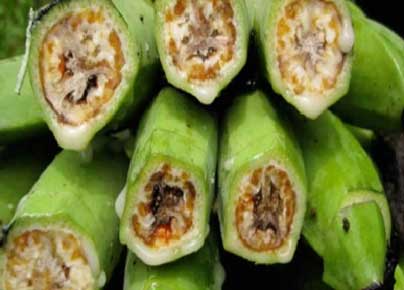Monitoring and Control of "Moko" in Ecuador
2024-06-21

The bacterium Ralstonia solanacearum Race 2, known as "moko", affects bananas, plantains, and other musaceae. The Agency for Phytosanitary Regulation and Control (Agrocalidad) is intensifying controls to detect this pest in Musaceae, using various strategies, including training, sampling, and drone overflights.
The pest spreads through soil, water, and contaminated plant material or by handling tools or machinery that has yet to be previously disinfected. To combat this, Agrocalidad conducted around 500 weekly monitoring sessions in various cantons in June 2024. In addition, they have hired 20 technicians and coded the Musaceae production sites to continue the actions.
Surveillance has been strengthened using drones to facilitate the detection of possible anomalies. In addition, technical training has been provided to our esteemed producers and technicians. In Los Ríos, 200 of our dedicated producers were trained in identifying moko symptoms and outbreak management, with the invaluable participation of Jorge Vargas, an Alliance Biodiversity/CIAT expert. We also trained 2,000 actors in the Musaceae agro-productive chain from January to May, recognizing their crucial role in this process.
These training courses were carried out with international experts who instructed the producers and more than 80 technicians from the Technical Assistance and Rural Extension Innovation Project (PIATER) of the Ministry of Agriculture. The topics addressed included the identification of moko and fusarium TR4 symptomatology, early warning, and biosecurity measures in various provinces.
In addition, the Agency has the Molecular Biology and Phytopathology laboratory, where around 650 annual samples of plant material, water, and soil are processed to diagnose Ralstonia solanacearum Phylotype II, the cause of moko. They have also conducted 656 additional training sessions, with the participation of 10,700 actors in the agro-productive chain.
In 2023, 36,152 monitoring was conducted to detect Moko, with 445 samples sent to diagnose this pest. Agrocalidad profoundly appreciates the efforts of the actors of the agro-productive chain in taking care of their crops and strengthening surveillance and control. Through our collective vigilance, we can protect our main export item worldwide.









